Plant the seeds of victory, March 03, 2021
Hey Mages! You know well what all this is about. We’re going to talk about another element of course. Today we talk about the quiet force, the late game monster, the problem you can’t afford to ignore. Today we talk about Vegetal.
What? We’re eating soup today? Did I miss something?
No, not vegetable, Vegetal. We noticed that this term would get us some puzzled looks with some of our English native speaking players. So we figured we could give you a word or two about why we chose to keep that term anyway.
The precise definition of Vegetal is “of, pertaining to, or of the nature of plants or vegetables.” This is actually the scientific term containing all of the existing plants and also englobing additional concepts like some algae for instance. Thus by itself, the term “Plant” was too restrictive. The difference may seem subtle, but magic is a very precise form of science, which made the members of the Circle adopt this term unanimously to talk about this element. “Why not Earth then?”. Well simply because it was way too close to Mineral and would definitely lead to mistakes and confusion.
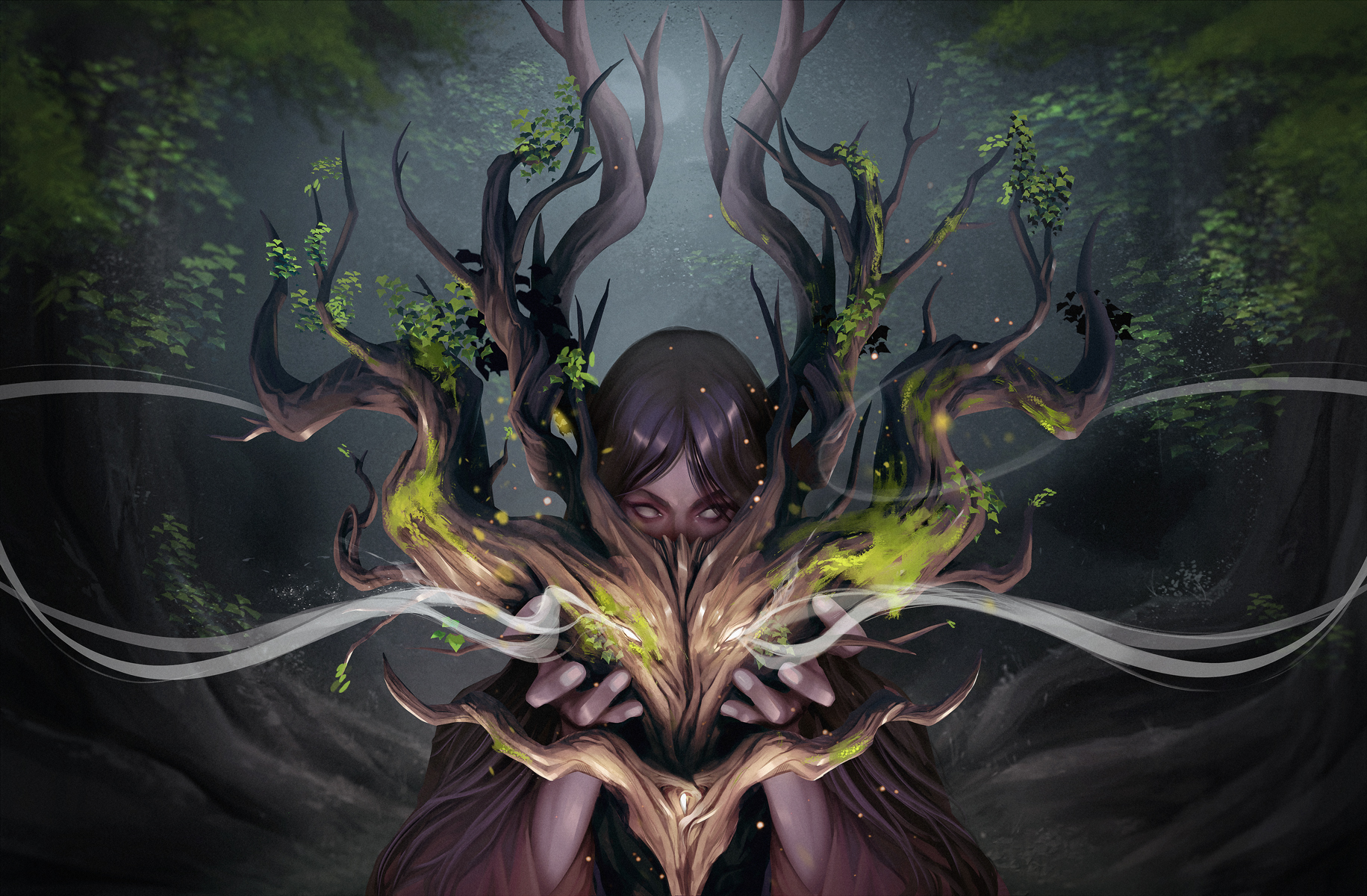
Druid horns by Jessica Heran
So what is Vegetal about exactly?
Well, Vegetal is all about growth. It’s about keeping a garden, about taking care of your precious little protegees. You give to your plant friends so that they can give back to you. Either by keeping you alive. Or beating the hell out of your opponent (And let me tell you, these trees do pack a solid punch). The main ideas we wanted to convey with vegetal were the following:
- Growth
- Cycling
- Force of nature
By that we mean that we wanted Vegetal to start off frail and defensive, but it would have neat tricks here and there to become this huge threat that would eventually become impossible to handle for the opponent. Whether by having too many potential targets, or having way too powerful ones.
What we did with Vegetal:
Creating Vegetal as a whole required us to think about it in a general way. Because unlike other elements, a good part of Vegetal spells needed to feel both frail and strong at the same time. By that we mean that they need to be protected, but they can also become a serious threat when unanswered.
This led us to creating the closest thing we have to creatures in the game. Permanents with Health Points.
Their main weakness was that they could be taken care of by the opponent only with damages. This makes vegetal feel pretty weak when the game starts. As you have only a few things on the board, having them removed quickly will leave you open.
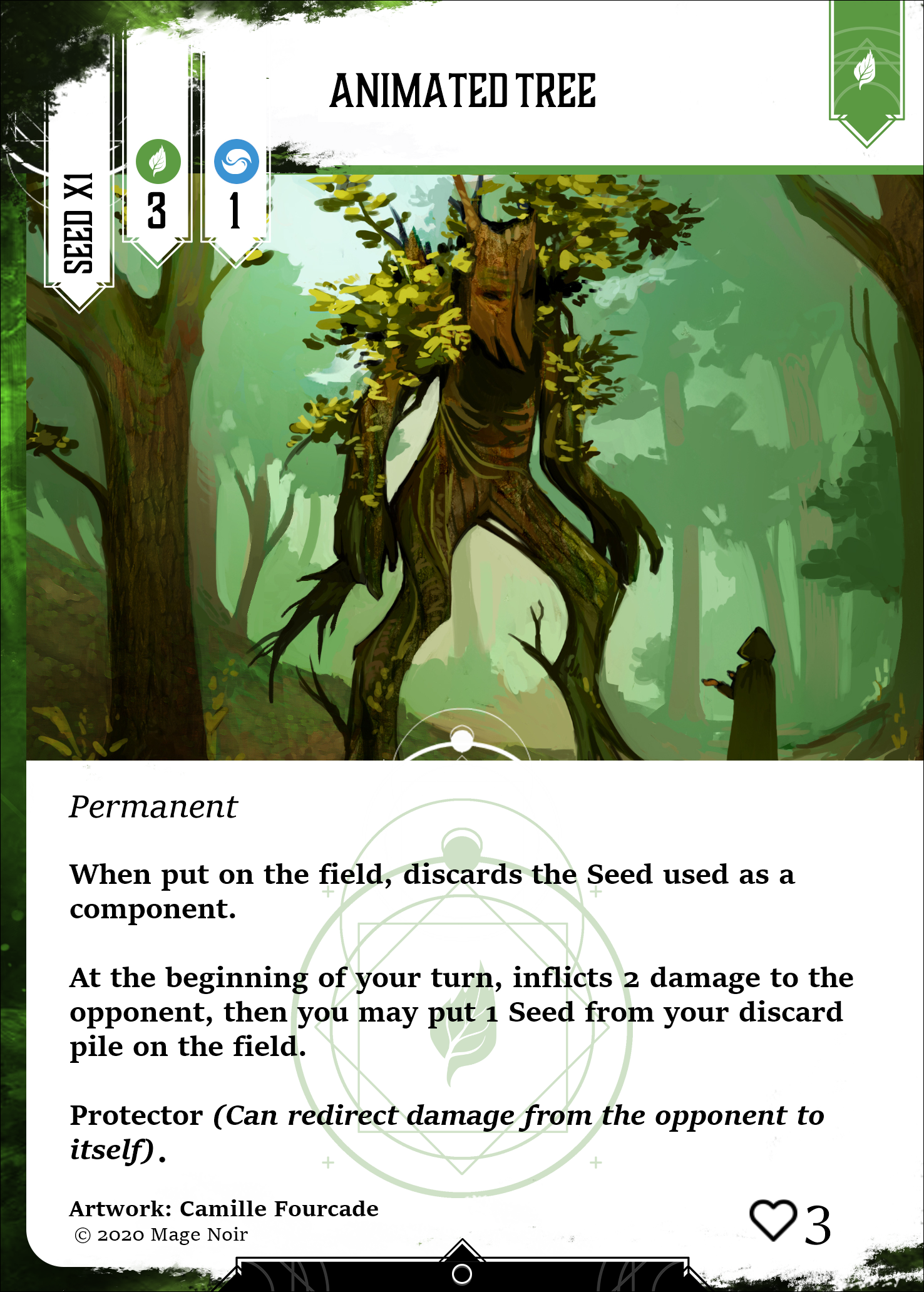
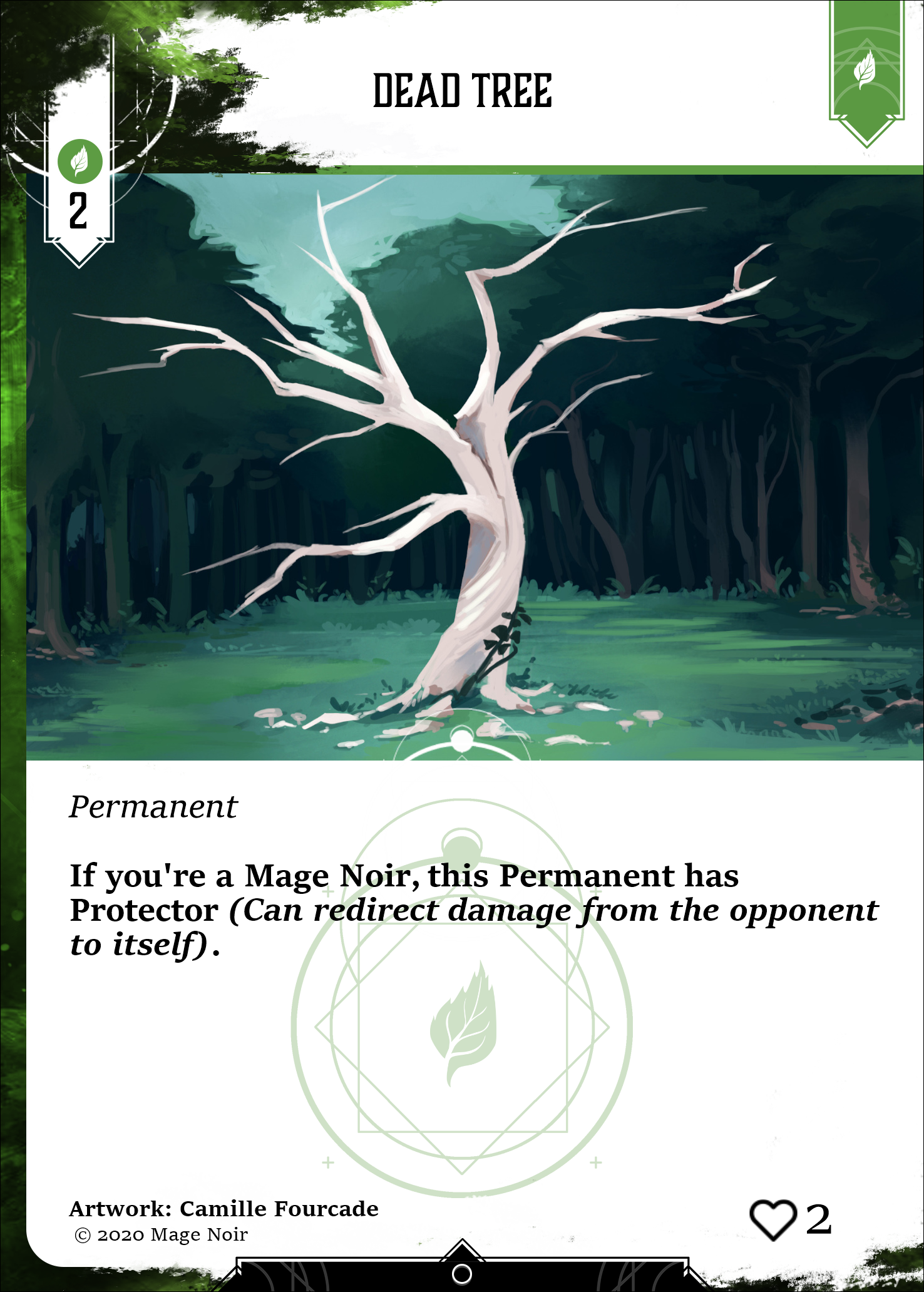
However, their benefits would completely balance those problems. In addition to having periodic effects that will keep on going, they will also serve as components without needing to put them aside. Thus, as long as you keep your Permanents alive, they will both bring you closer to victory and closer to an even bigger board, snowballing into a forest that will quickly overwhelm your opponent.
Thus the game plan of a Vegetal Mage was clear, protect your garden at the beginning and watch it beat your opponent in the end.
The main issue was that it was pretty hard to protect something that could get destroyed with something as available as plain damages.
The cycle of life
To help with that need of protection or rebirth we lacked, we worked around the cyclic part of Vegetals. We already had a form of cycle working thanks to most effects occurring at the beginning of the player’s turn. But we also wanted to convey the natural way plants work with a seed growing into a tree, giving more seeds and eventually leading to a forest.
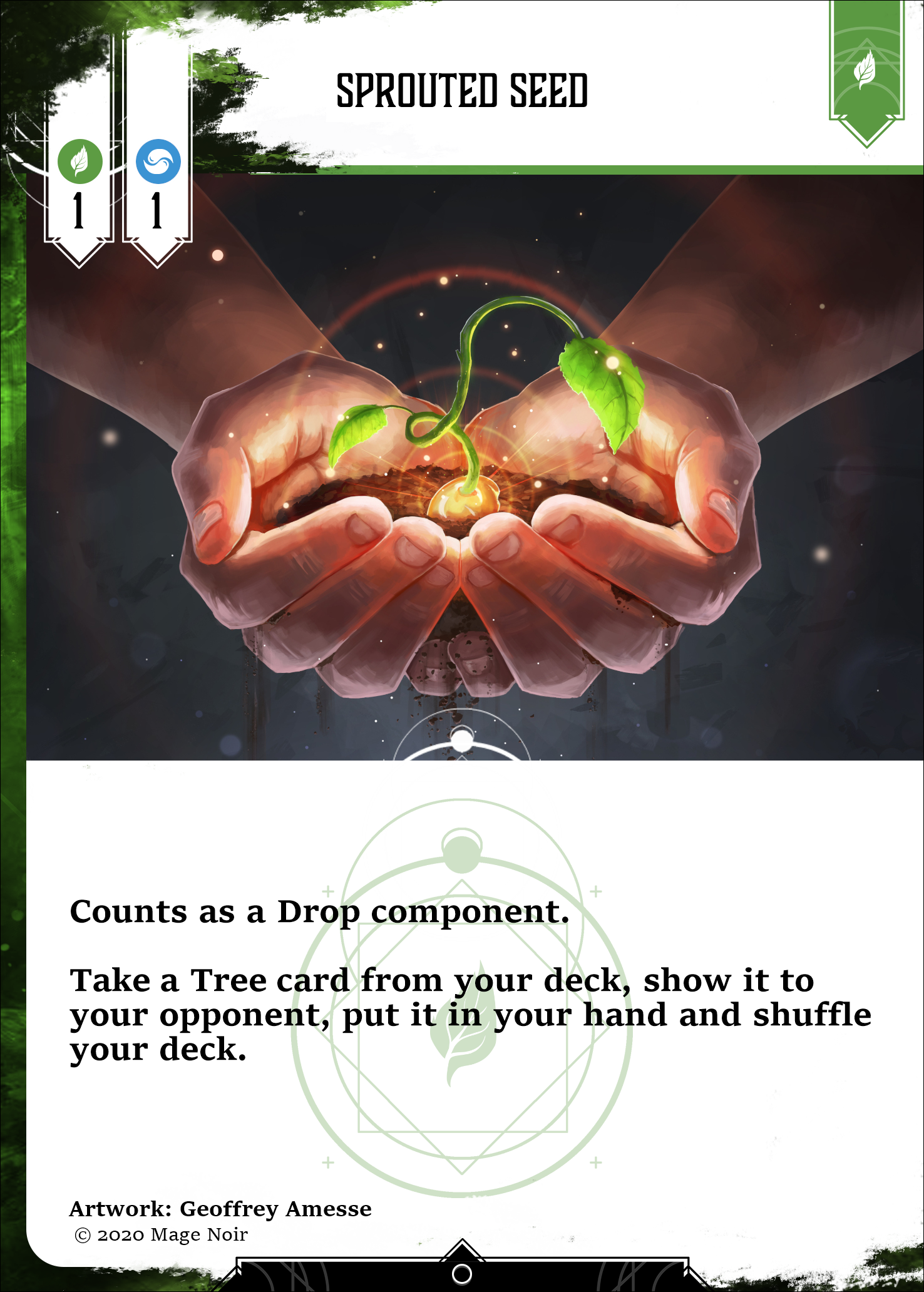
Growth from seeds to forest was pretty straightforward. You’d use seeds as the base component to get trees and trees as the base component to get forests. Interestingly enough, the way these three components scale up in a very linear manner makes us think of a tree growing.
Since seeds grow into a tree, it could not stay on the field once used. So to start with, it needed to be discarded once the tree arrived on the field. This was already logical enough, but we also needed to convey the fact that to keep spreading, trees would produce fruits and seeds.
Hence why we wanted some trees to be able to bring some seeds from your discard pile periodically. Now having a tree will allow you to get more seeds, allowing you to get more trees, etc.
This gives us a very interesting archetype, that requires good planning and the ability to pinpoint the best moment to start planting.
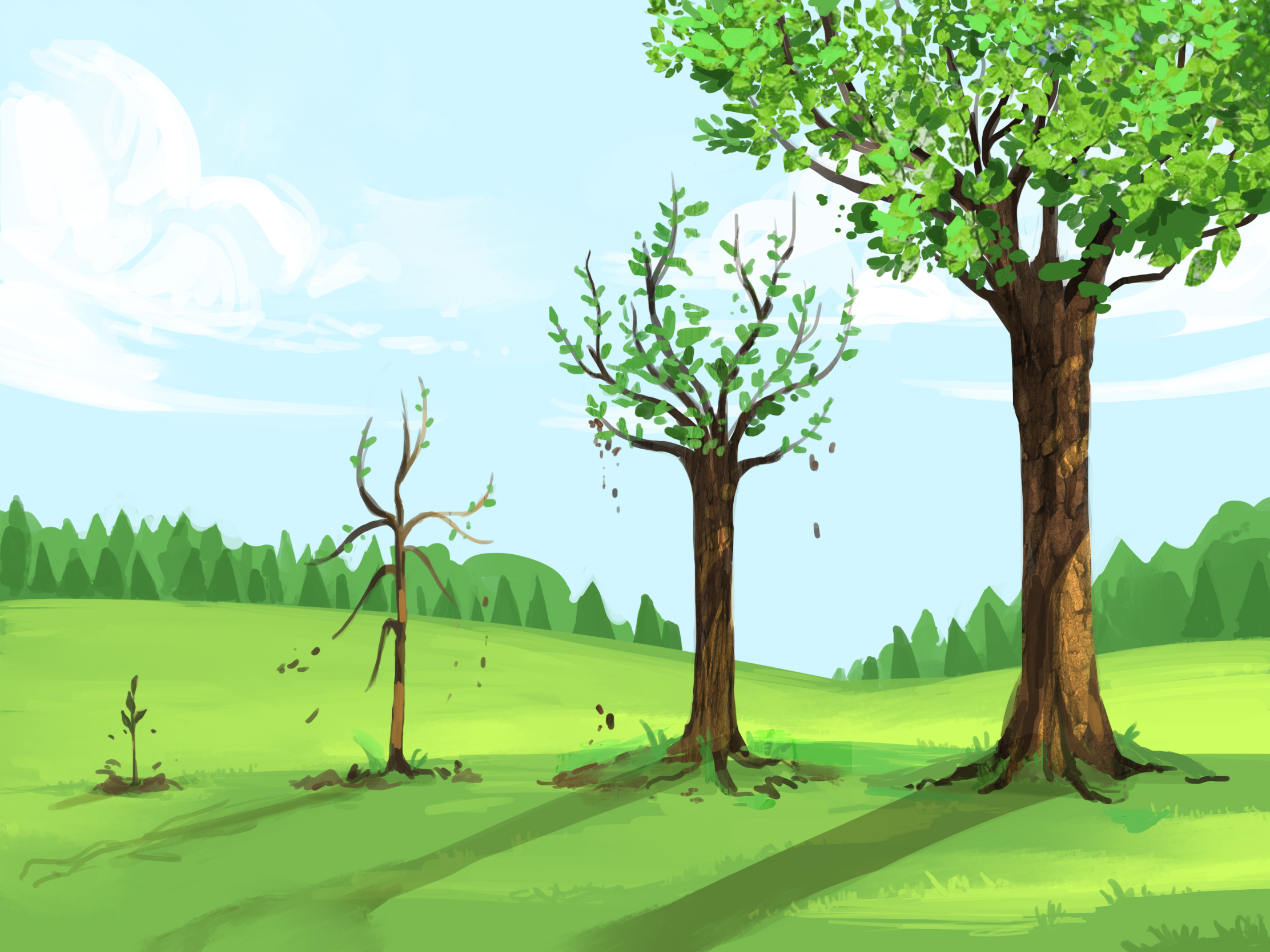
Prodigious sowing by Camille Fourcade
But we’ll let you discover that for yourself when you play Vegetal for the first time.
See you later Mages
We hope we teased your internal gardener enough to make you want to try Vegetal out. It truly is a thematic element that is incredibly satisfying to play once you’ve mastered it. The feeling of overwhelming power you get during the end game is unlike any other.
Until next time though, take care of yourselves Mages, and have fun!